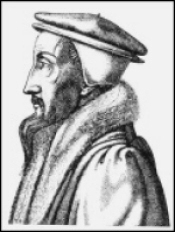The Significance of Barth’s Theology: An Appraisal with Special Reference to Election and Reconciliation
Digital Logos Edition
Overview
Originally presented as lectures at the Reformed Fellowship at Calvin College, The Significance of Barth’s Theology provides a general overview of Karl Barth’s theology. Fred Klooster pays specific attention to the formulation and significance of Barth’s doctrine of predestination and reconciliation. As part of his research, Klooster spent a year studying with Karl Barth—an experience that allowed him to glean more insight into Barth’s thought and present his ideas accurately.
The Logos edition of The Significance of Barth’s Theology is enhanced with amazing functionality and features. Citations link directly to English translations and original-language texts, and important terms link to dictionaries, encyclopedias, and a wealth of other resources in your digital library. The Topic Guide lets you perform powerful searches to instantly gather relevant biblical texts and resources. Tablet and mobile apps let you take the discussion with you. With Logos Bible Software, the most efficient and comprehensive research tools are in one place, so you get the most out of your study.
Looking for more studies on Karl Barth? Check out the T&T Clark Karl Barth Collection (9 vols.).

- Examines two of the most controversial aspects of Barth’s theology
- Charts Barth’s contribution to the doctrines of predestination and reconciliation
- Situates Barth’s theology historically
- The Significance of Karl Barth’s Theology
- Karl Barth’s Doctrine of Election
- Karl Barth’s Doctrine of Reconciliation
Top Highlights
“The occasional and reactionary character of Barth’s writing must always be recognized. He seeks constantly to overthrow the positions of his two great enemies, liberalism on the left and orthodoxy on the right.” (Pages 18–19)
“It came as a shock to him to learn that some of his esteemed teachers should endorse the German war aims, and he came to realize that a defective ethics must stem from an inadequate theology.” (Page 17)
“At the center of this system is Barth’s concept of Jesus Christ. The single source and norm of all Barth’s thought is his view of Jesus Christ, and from this source he draws all sorts of deductions for the whole of his system. The Scripture is simply the witness to that revelation, but the revelation itself is said to be Jesus Christ.” (Page 27)
“In spite of its appealing sound, the christological approach of Barth with respect to the doctrine of predestination is really a sort of natural theology based on Jesus Christ.10 Barth’s christological doctrine of predestination is in direct conflict with the very words of Scripture.” (Page 46)
“In its simplest and most comprehensive form the dogma of predestination consists, then, in the assertion that the divine predestination is the election of Jesus Christ’ (II/2, p. 103). In these words we have the heart of Barth’s doctrine of election.” (Page 52)
- Title: The Significance of Barth’s Theology: An Appraisal with Special Reference to Election and Reconciliation
- Author: Fred H. Klooster
- Publisher: Baker
- Publication Date: 1961
- Pages: 98
Reviews
8 ratings

M. David Johnson
3/27/2015

Randy Lane
1/16/2015

CSL
11/5/2014
I'm not surprised to see such good reviews of this book (not sure what happened with Rob). Just finished it and I feel like I finally understand Barth. Excellent distillation and explanation of the major themes and contexts of Barth's theology coupled with extensive and extended quotes from Barth himself. That alone would be enough to satisfy, but Klooster (a personal student of Barth no less) goes on to provide a brief but excellent appraisal of Barth from a biblical, historical theological, and Reformed perspective, as well as a comparison of Barth's theology with the Bultmanian liberalism he was supposed to be combating. Bottom line, if you want to understand Barth, his influence, and his context, this is the best place to start.
Dustin Payne
9/27/2014
AeliusCicero
6/19/2014

Larry Proffitt (I
5/29/2014

Rob
5/28/2014

Doug
5/27/2014
